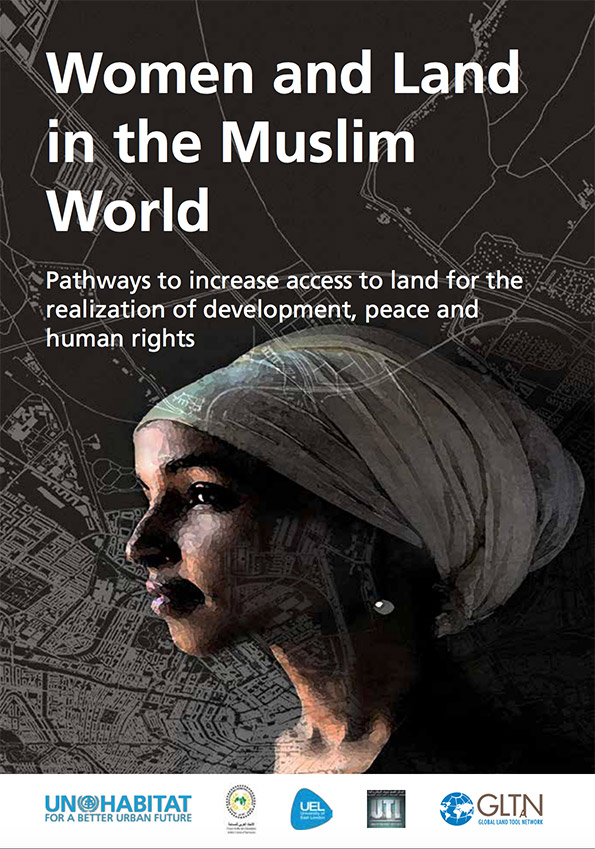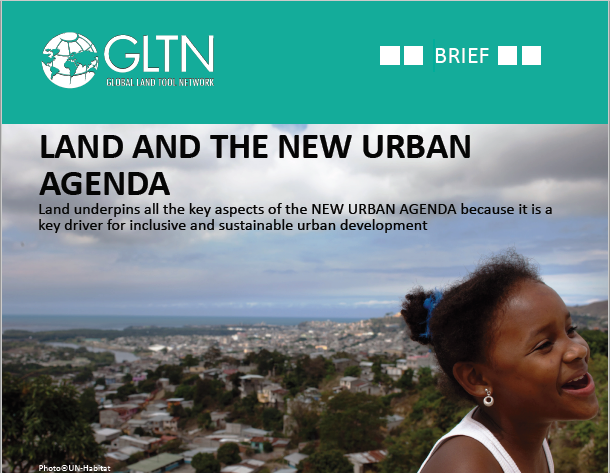Focal point
Location
The Global Land Tool Network (GLTN) is an alliance of global regional and national partners contributing to poverty alleviation through land reform, improved land management and security of tenure particularly through the development and dissemination of pro-poor and gender-sensitive land tools.
Secure land tenure and property rights are fundamental to shelter and livelihoods as well as the realisation of human rights, poverty reduction,economic prosperity and sustainable development.
The Global Land Tool Network (GLTN) main objective therefore is to contribute to poverty alleviation and the Millennium Development Goals through land reform, improved land management and security of tenure.
UN-Habitat through GLTN continues to work towards this with partners who include international civil society organizations, international finance institutions, international research and training institutions, donors and professional bodies.
Most developing countries use conventional land administration systems which cover less than 30 per cent of the country, leaving up to 70 per cent of citizens looking to informal and/ or customary approaches for their tenure security.
While there are many examples of good land policies, there are few policies that have been fully implemented due to lack of pro-poor, gendersensitive and largescale land tools. Further, conventional land titling approaches have largely failed to deliver their expected results since existing technical solutions are too expensive, inappropriate for the range of tenure found in developing countries, unsustainable financially or in terms of available capacity, and instead a range of land tenure options is more appropriate.
Core Values
Consequently, GLTN's core values and principles are founded in the development of land tools that are:
- Pro poor;
- Equitable;
- Sustainable;
- Affordable;
- Systematically large scale /scalable; and,
- Gender-sensitive, while taking into consideration:
- Good governance;
- Subsidiarity; and,
- The Continuum of Land Rights.
GLTN Objectives and Mandate
GLTN has developed a global partnership on land issues pulling together global partners, as well as many individual members. These partners include international networks of civil society, International Finance Institutions, international research and training institutions, donors and professional bodies. It continues to take a more holistic approach to land issues by working towards the following objectives:
- The establishment of a continuum of land rights, rather than just focus on individual land titling
- Improving and developing pro-poor land management, as well as land tenure tools
- Unblocking existing initiatives Assisting in strengthening existing land networks
- Supporting in the development of gendered land tools which are affordable and useful to grassroots
- Improving the general dissemination of knowledge about how to improve security of tenure
- Improving the general knowledge dissemination on the improvement of security of tenure
Resources
Displaying 46 - 50 of 288Women and Land in the Muslim World
This publication provides practical and evidence-based guidance on how to improve women’s access to land as an essential element to achieve social and economic development and enjoyment of human rights, peace and stability in the specific context of the Muslim world. The challenges faced by women living in Muslim contexts do not substantially differ from those faced by women in other parts of the world: socially prescribed gender roles, unequal power dynamics, discriminatory family practices, unequal access to justice are the most common.
Women and Land in the Muslim World
This publication provides practical and evidence-based guidance on how to improve women’s access to land as an essential element to achieve social and economic development and enjoyment of human rights, peace and stability in the specific context of the Muslim world. The challenges faced by women living in Muslim contexts do not substantially differ from those faced by women in other parts of the world: socially prescribed gender roles, unequal power dynamics, discriminatory family practices, unequal access to justice are the most common.
Women and Land in the Muslim World
This publication provides practical and evidence-based guidance on how to improve women’s access to land as an essential element to achieve social and economic development and enjoyment of human rights, peace and stability in the specific context of the Muslim world. The challenges faced by women living in Muslim contexts do not substantially differ from those faced by women in other parts of the world: socially prescribed gender roles, unequal power dynamics, discriminatory family practices, unequal access to justice are the most common.
Women and Land in the Muslim World
This publication provides practical and evidence-based guidance on how to improve women’s access to land as an essential element to achieve social and economic development and enjoyment of human rights, peace and stability in the specific context of the Muslim world. The challenges faced by women living in Muslim contexts do not substantially differ from those faced by women in other parts of the world: socially prescribed gender roles, unequal power dynamics, discriminatory family practices, unequal access to justice are the most common.
Flyer LAND AND THE NEW URBAN AGENDA
LAND AND THE NEW URBAN AGENDA Land underpins all the key aspects of the NEW URBAN AGENDA because it is a key driver for inclusive and sustainable urban development






